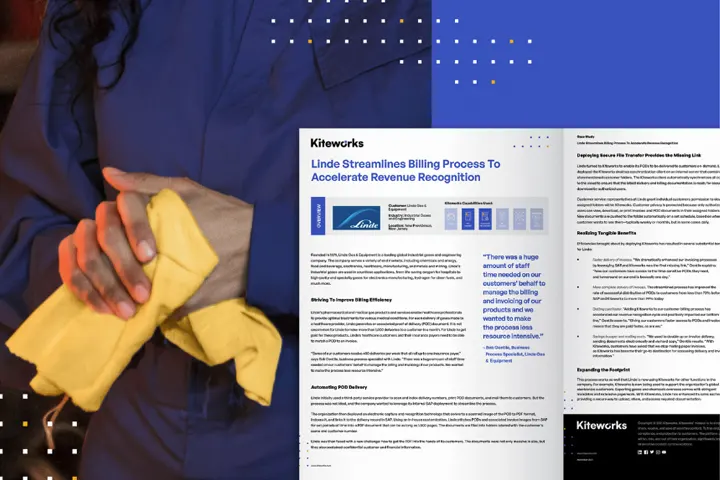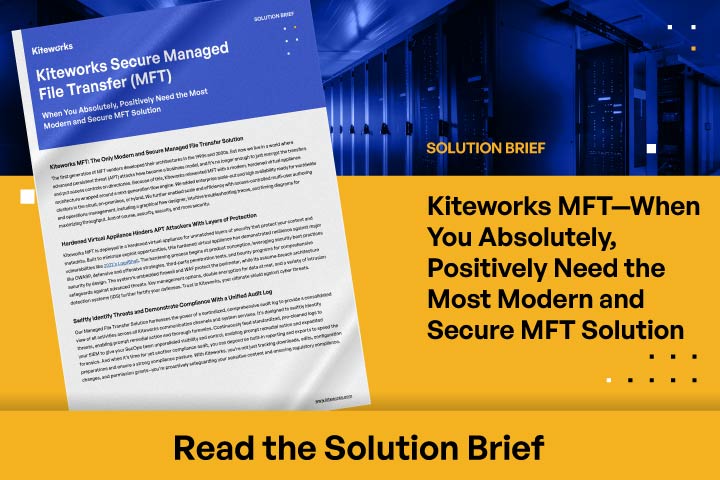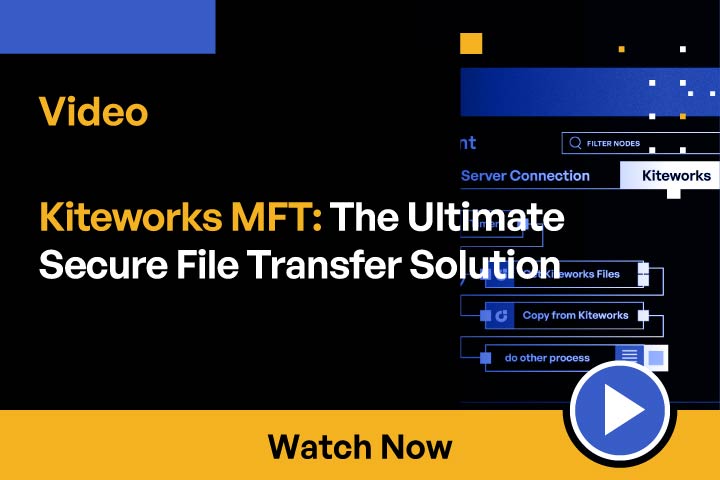
Build Integrations, Applications, and Automated Management
Kiteworks’ powerful RESTful APIs empower organizations to automate management of shared folders, users, roles, policies, and other administrative controls. Organizations also utilize APIs to automate file transfers to and from ERP, data, and remote systems, legacy applications, and suppliers. Finally, they can add secure, governed file transfer and email to mobile apps, web apps, forms, and custom clients.
Lock Down Sensitive Data With Built-in Defense in Depth
Customers utilizing Kiteworks’ secure APIs have an entire toolbox of security features at their fingertips, including but not limited to a hardened virtual appliance, an embedded firewall and web application firewall (WAF), “one-click” full-system updates, regular security audits, penetration testing, a competitive bounty program, and an assume-breach internal architecture that slows attackers and rapidly alerts SecOps. Sensitive data is further protected by granular access controls, file encryption in transit and at rest, and integration with your security stack, including authentication, security information and event management (SIEM), advanced threat protection (ATP), and data loss prevention (DLP).


Meet Compliance Regulations With Built-in Governance Controls, Tracking, and Reporting
Kiteworks’ secure APIs bolster an organization’s governance and regulatory compliance efforts with role-based, granular controls. This minimizes sensitive data exposure to unauthorized access, and enables automatic archiving for legal holds, as well as comprehensive activity logging and compliance audit reporting.
Optimize Privacy and Infrastructure With Flexible Deployment Options
Kiteworks’ deployment flexibility gives organizations a choice when utilizing Kiteworks’ secure APIs. Choose the deployment that best fits your privacy, compliance, scalability, and cost requirements. Deployment options include on-premises, secure cloud hosting on a single tenant and a hardened virtual appliance, secure cloud hosting on AWS or Azure, or FedRAMP Authorized Cloud Hosting.

Secure API FAQs
Secure APIs are application programming interfaces (APIs) that have been designed with secure protocols, authentication, and encryption measures to ensure the integrity of data, authentication of users and devices, and verification of messages received. Secure APIs are important because they provide the foundation for secure communication between applications and services. They protect applications and services against malicious access and data theft, ensuring that personal data and other sensitive data is not exposed. By using secure APIs, organizations minimize their data and application security risk, ensuring that their systems are secure from malicious intrusion.
Developers can make APIs either secure or more secure by setting API keys to allow only specific users, applications, or servers to access their API and provide additional security from malicious actors. Developers can also implement rate limiting to limit the number of requests that can be made to an API within a given time frame. This helps to protect the API from abuse, such as a malicious actor making too many requests in an attempt to overload the system and cause it to crash.
Secure SFTP APIs are secure application programming interfaces (APIs) that allow developers to connect to and transfer files over SFTP (Secure File Transfer Protocol) networks. They provide a comprehensive set of secure file transfer capabilities, including encryption, authentication, logging, and digital signature verification. Secure SFTP APIs also offer additional features like folder synchronization and remote directory listing for data management.
Secure email APIs are application programming interfaces that enable developers to programmatically build, integrate, and deploy secure email services in their applications. The APIs provide secure connection protocols and methods to ensure that emails and other transmissions are sent and received securely. Some features of secure email APIs include encryption, authentication, authorization, and monitoring of user activities.
Secure APIs provide a robust layer of security that helps protect resources and data from unauthorized access. They help to ensure that access is only granted to those who have the proper credentials and that the data is only accessed in the way that it is intended. They also help to prevent data tampering and ultimately improve the security of any system or application that is using the API.
FEATURED RESOURCES

Linde Gas: More Timely Invoicing Leads to Faster Revenue Recognition

Kiteworks Secure Managed File Transfer—When You Absolutely, Positively Need the Most Modern and Secure MFT Solution
